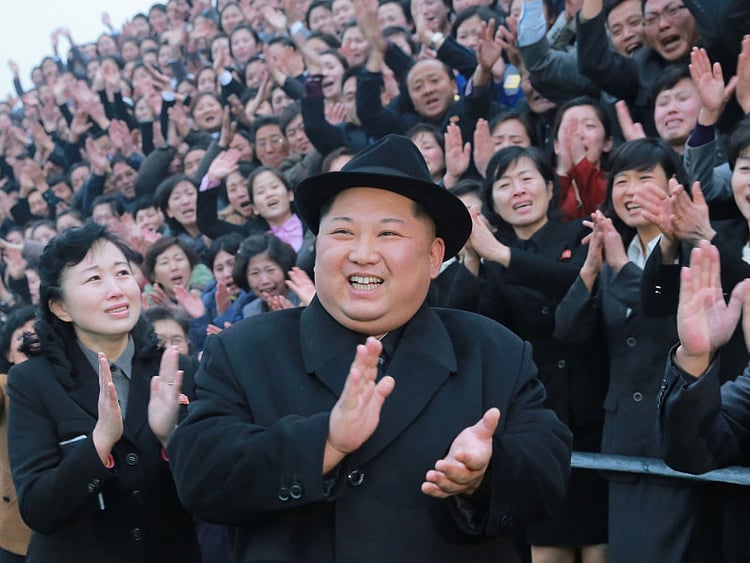Short fatty, may I introduce old lunatic? At least, that’s how my version of the historic meeting between President Donald Trump and North Korea dictator Kim Jong-un will kick off. These were the insults traded by the two leaders last autumn, even as Trump lamented on Twitter: “I try so hard to be his friend!”
But now it’s all go. Trump has astonished the world by agreeing to meet “little rocket man”, as he fondly terms him, after months of threats and economic pressure. Kim has agreed to denuclearisation in return for the meeting, the US president claims, in what appears to be an enormous diplomatic breakthrough. But though the method might look unorthodox, we have been here before.
North Korea has a history of luring the UN and Western powers into talks, while secretly continuing with its nuclear programme. In 1994, it signed an agreement to freeze and then abandon its nuclear programme and Bill Clinton began planning a visit. But the agreement was never fulfilled. Instead, in 2002, the country declared that it had been advancing its nuclear ambitions all along. A similar attempt at talks in 2005 broke down almost immediately and Pyongyang carried on its research and testing missiles. Now, nearly 30 years in, it is on the cusp of mastering miniaturisation, the final step needed to deliver an intercontinental nuclear attack.
If there is a difference this time, it is the position of China. Alongside the UN’s tightening of sanctions on North Korea, the US slapped its own sanctions on Chinese banks that do business there. But more fundamentally, Beijing does not want a rival nuclear power in its backyard and is tightening the screws on its pet rogue state. Since China started to implement the UN restrictions, North Korea has been forced into electricity and fuel rationing. The fundamental logic has not changed for Kim. He can only guarantee his own defences against coup or attack by developing the ultimate deterrent. So he’s unlikely to give up the fruits of several decades’ work begun by his grandfather.
All of this means that the meeting, though trumpeted far and wide, has no guarantee of taking place. In a phone call to Japanese prime minister Shinzo Abe, Trump assured him that it came with conditions attached: North Korea would need to show real commitment to shutting down its nuclear programme. What that means is still a mystery, but if the president is serious, given Pyongyang’s history of deceit, it will be very difficult for the US and its allies to receive enough concrete evidence of goodwill before delivering the photo op.
Trump’s critics accuse him of warmongering and brinkmanship. The truth is that he has inherited a situation with no good options. Talking runs the risk of being played. War carries the virtual certainty of millions of deaths in South Korea and possibly Japan. The president’s actions might look unpredictable and dangerous, but nothing has worked so far. With China seemingly now on side, the real question is whether Beijing has both the will and the means to follow through.
— The Telegraph Group Limited, London 2018
Juliet Samuel is a columnist for the Daily Telegraph.
Sign up for the Daily Briefing
Get the latest news and updates straight to your inbox
Network Links
GN StoreDownload our app
© Al Nisr Publishing LLC 2026. All rights reserved.
